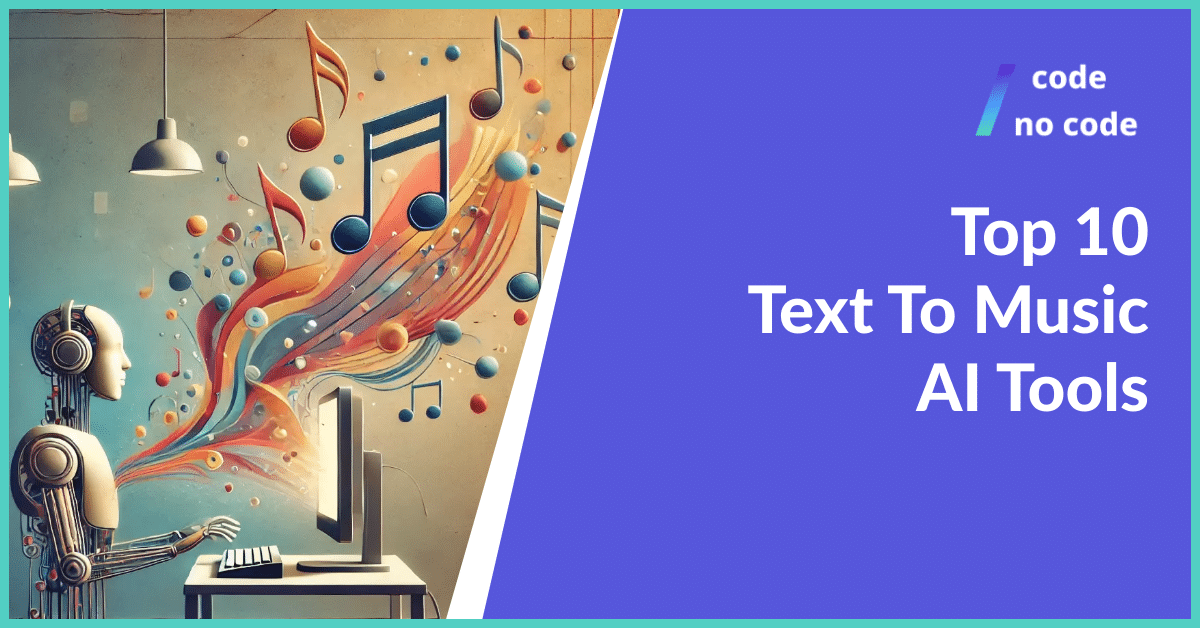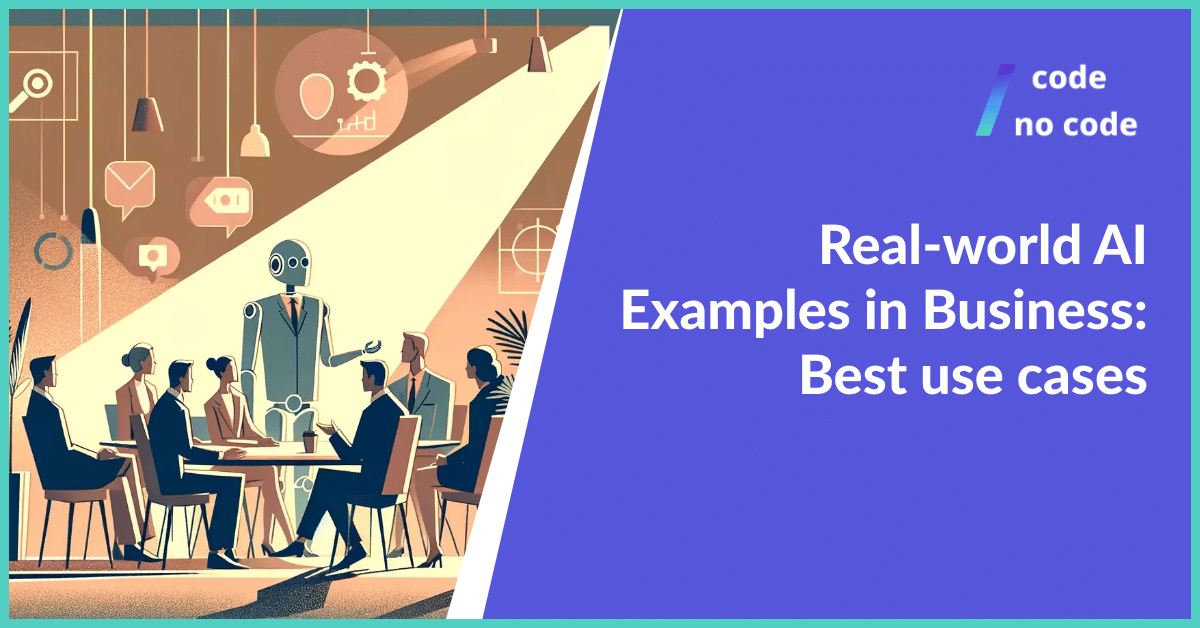
Top 10 Text To Music AI Tools
You couldn’t even dream of making music in minutes a few years ago, but now it’s possible and easy. Text to music AI tools turn written text...
There are many ways to use AI in the business world, from customer relationship management to AI process automation. It mostly depends on what areas companies are looking to improve with AI, which could include automation, for one, or broader areas such as marketing.

I’m not going to include many examples of AI technologies being used by large companies because the descriptions of them online are quite vague. I’ll include real-world examples that can be used by small businesses or individuals all the way up to large companies.
They will mostly focus on improving specific aspects such as data analytics, using AI for marketing teams, improving customer experience, and more.
AI in business refers to the use of artificial intelligence technologies to improve various aspects of an organization’s operations. It’s a wide field that includes various tools and techniques that can automate tasks, analyze data, generate insights, and even make decisions.
There are many valid reasons why organizations should consider using AI, and the specific benefits will vary depending on the industry and individual needs. Here are some of the key benefits:
As I said, there are a lot of ways to use AI in business, I’m not going to give examples of self-driving technology, facial recognition, or improving drug technology with AI, because these examples are not helpful to the majority and require a different article altogether.
Make and Zapier are two of the biggest automation tools out there, and for good reason. They integrate with a lot of tools and you can even do automations with AI.
They connect ChatGPT to different business apps like Gmail, Google Sheets, Airtable, Slack, etc to automate workflows across platforms.
A simple example you can try and use for social media posts. But it can also be used for other work areas. All you have to do is create a prompt with some templates of how you write. Then provide about 10 examples of posts, connect it to an Excel file with Make and you have an Excel file on command that can generate social posts for LinkedIn, Instagram or any other social platform.
However be warned, as with other AI tools, it is not perfect, you will need to add a human touch to make it work properly. But it’s one of those AI applications you should consider using.
It is a tedious task to go through large data directories by hand. There is a tool called GPT4All, which allows you to select the type of machine learning models you want to use. It is useful because it is an offline application and it does not train the AI models.
The primary benefit of this tool is its ability to be trained on a folder of documents. By connecting the folder, you can easily retrieve information from the files without the need for manual searching. This feature is particularly useful for those who work with a large volume of documents on a daily basis and need to ensure their privacy.
This may seem obvious, but artificial intelligence can be used for a lot of marketing. From creating text to creating images, the possibilities are endless.
Here is an example of how to create content of any kind with a few AI tools. First of all, depending on your content, choose a content-generating AI like Penfriend.AI, Scalenut, or even ChatGPT. As the text will not be the best depending on your content, copy all the text content to DeepL Write and paraphrase it into proper human-like sentences.
The most important thing is to use your original ideas in AI-generated content, so you’re not just repurposing old content on the web.
Okay, so you have the text, what about the visuals? I would suggest using Midjourney. It is simply the best for personalized marketing. You can create graphics, and elements for a shop, or page, create full logos, or just generate real people scenarios. And there you have it, creative content is completely done by AI (with some human touch).
There are many ways to use artificial intelligence in business to improve productivity and have AI assistants. One of the best use-case is to for the AI to take notes in a meeting.
One of these examples is Fireflies.AI, which joins any online meeting you have, all you have to do is register and allow it to join it. It will take all the notes, key points and summarise each meeting.
Although I have to add that such tools are very good at capturing meetings in English, they still need to improve at capturing other languages.
Chatbots and virtual assistants: AI-powered chatbots can answer customer questions, resolve issues, and even personalize interactions. Tools like Drift, Zendesk, and Ada offer chatbot solutions. You will not create a self-driving car with these tools but they do increase business value and decrease costs.
These tools are straightforward for e-commerce websites, especially since you provide your company information, company policy and you are set to go with no need for human employees. But you will still have to overlook some of the more difficult issues or the customer experience will lose its personality.
Most of these AI tools also have additional functions that can help analyze customer conversations, rather than doing it manually.
Recruitment and talent acquisition: Sitting through tons of CVs is a tedious task. Traditional methods often rely on keyword searches, which can miss qualified candidates who don’t use the exact phrases in their resumes.
AI tools can analyze resumes and identify the most qualified candidates. These AI-powered systems go above simple keyword matching. They can:
At the moment, there are even more use cases you could try, such as lead generation or tracking. However, when using AI tools, it is important to remember to tailor the tools to your business and to test them extensively before implementation.
Most of the biggest enterprises are using AI nowadays. Here are some examples that may be out of the reach for small businesses, but crucial when you grow.:
As you can see, there are many areas where you can use AI in your business.. You must strive to improve with AI, or you risk being left behind in the dust. Staying still with technology is not an option.
If none of the use-cases were relevant to you, or if you are interested in exploring how AI could benefit your company, contact the company I run – Idea Link.
To conclude, AI offers huge potential for businesses to improve efficiency, innovation, and customer experience. However, it’s important to carefully consider the challenges and implement AI responsibly to realize its full benefits.